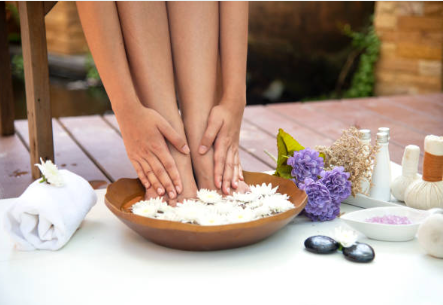What's Self Care?
Self-care is a process of taking care of yourself on a regular basis. Self-care is not about pampering yourself or avoiding stressors, but about boosting your health and happiness. Here are some tips to help you care for yourself: Schedule activities, get plenty of rest, and find a way to make time for fun.

Selfpause Affirmation App
Download the app to get 1,000’s of affirmation meditations and everything you need to write, record and listen to your own.
Self-care is taking care of yourself

Self-care is a vital part of our lives, and it isn’t only important when you’re ill. Healthy habits like eating the right foods, exercising, and taking some time out every now and then can help us keep our mental and physical health in check. Not only will self-care make us feel better, but it can also help us work better and more productively.
Self-care includes a variety of activities, and it can be as simple as taking a long walk or doing some yoga. Many people find that regular exercise helps to improve their mood and energy levels. It can also enhance their social connections and spiritual life. Taking care of yourself is essential if you want to improve your life.
Self-care is the practice of nourishing your mind, body, and spirit. It helps to manage stress and reduce your risk of illness. It can be as simple as getting plenty of sleep each night or as complex as evaluating your habits. No matter what form of self-care you choose, make time to do something that you enjoy.
One of the most important principles of self-care is to say no when you need to. It is a common practice for people to say “yes” to everyone, but doing so can lead to stress, burnout, and a lack of peace of mind. It is essential for self-care to take care of yourself before you can take care of others.
It’s not about pampering yourself

While self-pampering is not always a major improvement in overall health, it can help trigger a relaxation response, which prevents chronic stress from causing serious damage. In addition, self-care can help us remember that we are valuable. Having a healthy body makes us feel good and sends a message to others about our worth. This can create long-term feelings of wellbeing.
Self-care should include some time for relaxing activities such as reading a book, visiting a spa, or simply taking a nap. Depending on your schedule, you might want to schedule time for self-care so that you don’t feel rushed and stressed out. Organizing a time when you’re free to do things you enjoy will allow you to relax and recharge, which will in turn benefit everyone around you.
Self-care is also not about spending money or splurging. You should be honest with yourself and be aware of your limitations. Sometimes self-care involves making decisions that are in your best interest. You should always be true to yourself and honor your commitments. It’s important to set limits, set boundaries, and be your own advocate.
Self-care is important because it allows you to show up as your true self. It can reduce the risk of many diseases and reduces the likelihood of mental health issues. By eating healthy foods, exercising regularly, and following the guidelines for taking prescribed medications, self-care can help you avoid a variety of physical problems and improve your mental health.
It’s not about avoiding stressors

Self care is an essential part of a healthy life, but it is not about avoiding stressors. Self-care requires a commitment to paying attention to your emotional state. Avoiding situations or feelings that are uncomfortable can add to your overall stress level. Avoidance also tends to lead to numbness or fatigue. Although self-care may seem simple, it can often be tedious things. The goal is to reduce stress and improve well-being.
In contrast to avoidance, active self-care involves actively responding to symptoms and engaging in activities that are in conflict with them. For example, one strategy for dealing with anxiety is to create a grading system of unpleasant experiences that start small and gradually increase in unpleasantness, but should not send the sufferer into a distress mode. By actively responding to the symptoms of anxiety and stress, a person will be better equipped to cope.
It’s about boosting health and well-being
Self-care practices have a variety of benefits, including improving overall health and wellness. Some methods include using technology to improve your mental state, making time for exercise and meditation, and boosting your spiritual connection. Regardless of your current state, self-care practices will help you feel better and improve your relationships.
It improves productivity

According to research, self-care improves productivity by 12 percent. People who are happier at work are more productive than people who are not. Taking breaks and ensuring that you get enough sleep can help you achieve your goals. Self-care also means setting healthy boundaries with yourself. This may mean turning off your email notifications after work, or talking to your boss about the amount of work you can handle.
Self-care is often overlooked in the modern workplace, but it is important for your mental and physical health. Stress affects the body and can result in high blood pressure, headaches, upset stomachs, and chest pain. Not only can stress make you feel physically ill, but it can also interfere with your sleep and performance. Creating a time to do nothing but relax and rejuvenate yourself can be essential for improving your productivity.
Apart from ensuring your physical and mental health, a variety of hobbies can boost your productivity. Hobbies can improve your mood, improve your creativity, and help you grow as a person. Even if you don’t find your passion in the office, you can always take up a hobby that interests you.
Self care also improves your relationships. Whether it is a professional relationship or a personal one, taking time for yourself can boost your confidence and happiness. If you’re stressed out about your job, self-care can help you relax and reconnect with those you love. Taking care of yourself will help you feel happier, which can spread positivity throughout the rest of your life.
Our Top FAQ's
Self care refers to the actions that individuals take in order to maintain their physical, mental, and emotional health. It can include activities like getting enough sleep, eating nutritious meals, exercising regularly, and engaging in activities that bring joy and relaxation.
Some examples of self care activities include:
- Getting enough sleep and rest
- Eating a healthy and balanced diet
- Exercising regularly
- Participating in activities that bring joy and relaxation, such as hobbies or creative pursuits
- Spending time with loved ones and building positive relationships
- Seeking help or support when needed, such as from a mental health professional or a trusted friend or family member
Self care is important for our overall well-being because it helps us to manage stress, improve our physical and mental health, and maintain balance in our lives. It can also help us to feel more energized, focused, and productive, which can have a positive impact on our work and personal lives.
There are many ways to incorporate self care into our daily routines, depending on our individual needs and preferences. Some suggestions include:
- Setting aside dedicated time for self care, such as a few minutes each day to practice mindfulness or take a walk outside
- Making self care a priority and treating it as an essential part of our daily routine, rather than something we do only when we have time
- Experimenting with different self care activities to find out what works best for us
- Asking for help when needed, such as seeking support from friends or family members or consulting a mental health professional
Some potential barriers to practicing self care include time constraints, feelings of guilt or shame, and a lack of resources or support. To overcome these barriers, it can be helpful to set realistic goals, seek support from others, and be kind and compassionate to ourselves. It can also be helpful to identify and address the root causes of these barriers, such as a busy schedule or unhelpful thought patterns.
